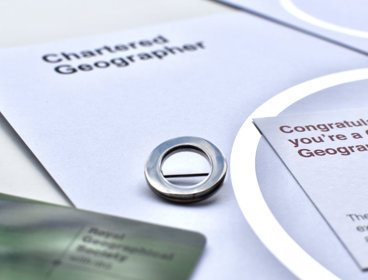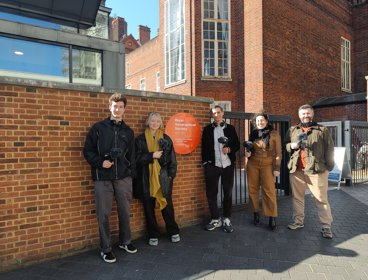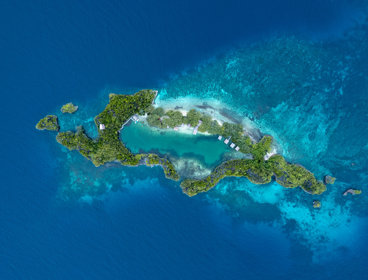What stories can be uncovered from the wild edges of the natural world? Documentary filmmaker Ted Simpson seeks to find out.
Through work that cuts across society, nature and the environment, Ted explores complex topics using human stories and nuanced perspectives. His latest short film, The Pine Hunters, follows two ecologists in search of the last ancient wild pine forests in Britain. In May and July, screenings of the film will take place at three of the Society’s regional theatre venues across the UK, followed by insights from his filmmaking and a Q&A session.
We caught up with Ted, ahead of his tour, to hear about his experience capturing nature’s stories, his favourite geographical locations to shoot, and how cinematography can contribute to societal and environmental advocacy.
Tell us a bit about your background and what inspired you to get into filmmaking?
"I am a documentary director, working on wildlife, environmental and adventure projects. I’m mostly inspired by stories of people and nature. Growing up, I was lucky enough to spend a lot of time outdoors, captivated at an early age by tales of adventure and exploration. As I’ve grown, I have realised that the most interesting stories to me aren’t necessarily the ones of people doing things in the natural world, but stories of nature itself and our relationship with these environments. The complexity of that relationship has driven my filmmaking for several years now."
You have captured some incredible stories in your films, are there any experiences which have stood out for you?
"One of the most amazing experiences came in Norway during production for The Eagle With The Sunlit Eye. We followed a Norwegian eagle expert on a mission to collect white-tailed eagle chicks from various nests across Western Norway that would then be flown to Ireland to form part of the reintroduction effort there. I was lucky enough to follow this process intimately and seeing an eagle chick up close was something I will never forget. It was made even sweeter by seeing those chicks released to their new home in Western Ireland a few weeks later!"
Do you have a favourite geographical location that you have shot?
"There’s been plenty of breathtaking locations, but I think one that impacted me profoundly was while shooting The Pine Hunters. We followed two ecologists out to one of the most remote pockets of the Western Highlands in the search of a lone Scot’s pine. As we set up camp in the glen, we noticed hundreds of stumps of old wild pine trees around us. At first glance they weren’t easy to spot, but the more we looked, the more we saw. It was perhaps the first time I’ve been able to truly visualise the sense of scale of forest that existed there once and so, also, the sense of loss of something magnificent. It felt like a special moment. I’ve seen these landscapes through several lenses, but the emotion I felt in that moment definitely defined my experience of making that film."
Raising awareness about societal and environmental issues is clearly something you are very passionate about, how do you think cinematography can help to advocate for these issues?
"The biggest challenge in my job is storytelling. How do you communicate an issue and explore a complex topic without people switching off? One of the most important lessons I’ve learnt is that conservation isn’t just what people think or the core facts at play, it’s also about how people feel. Cinematography and all the other elements in making a film feel emotive, such as the music, atmosphere and anything that draws an audience in, are vital tools in making your films count for more than just information. If you can make the person watching connect emotionally to the story, the impact of that story will be far more profound than just telling them the ‘right’ answers.
A lot of my filmmaking comes from deep questions I’ve asked myself about our place in the world and our relationship with nature. To me this relationship dictates how we approach the biggest environmental challenges of this time. It’s also incredibly complicated and has evolved over thousands of years. For example, while there’s no right answer to how we should feel about predators returning to our shores, holding up a lens to these issues and allowing audiences the chance to assess how they hold nature in their own lives will hopefully have a positive impact in how we can move forward to protect nature."
What is your process prior to heading out to film? How do you know you'll get the content you need to support the story you're hoping to tell?
"A lot of the important groundwork for documentary films is laid out before the cameras have been turned on. For each of my feature films I dedicate a large amount of time to research, preparation and story structure, but most important is spending time on the ground with each character without a camera in hand. This allows me to foster a genuine connection to them and to fully understand their point of view, which has been important when telling stories that revolve around vitriolic topics such as rewilding, deer management or predator reintroduction. Sometimes the characters say exactly what I would expect, but I almost always learn something new - a different perspective, stance or emotion that challenges my own preconceptions and lead me back to the drawing board. Fitting these characters together and doing them justice is a fascinating jigsaw puzzle; without that time getting to know each other, I think my films would be poorer."
Do you have any tips for someone starting out in documentary filmmaking?
"Don’t underestimate the power of stories. I learnt to make films on my phone. All aspects of filmmaking are just tools to serve the story that you’re trying to tell. If you’ve found a story or a character that you simply can’t stop thinking about, that is your gut telling you to make that film and if you’re lucky enough to find that story, just go make it. You will learn so much and you won’t regret it."
What can audiences expect from the upcoming film screenings?
"I’ll be sharing some (hopefully!) interesting stories and perspectives on our wild landscapes in Britain that I have learnt about over the last few years making films. I’ll also be screening my latest short film, The Pine Hunters, which follows two ecologists as they journey to record the last of our ancient wild Caledonian forests. So, I can promise some beautiful imagery of Scottish landscapes and some breathtaking ancient Scot’s pine!"
The Pine Hunters is part of the Society’s Regional Theatres Programme. Book a seat now and immerse yourself in the power of cinematography this summer.
- Wednesday 7 May, Stamford Arts Centre, 27 St Mary's Street, Stamford, Lincolnshire, PE9 2DL.
- Saturday 10 May, Rheged Centre, Redhills, Penrith, Cumbria, CA11 0DQ.
- Tuesday 1 July, Exeter Phoenix, Bradninch Place, Gandy Street, Exeter, EX4 3LS.
You can watch the trailer below:




